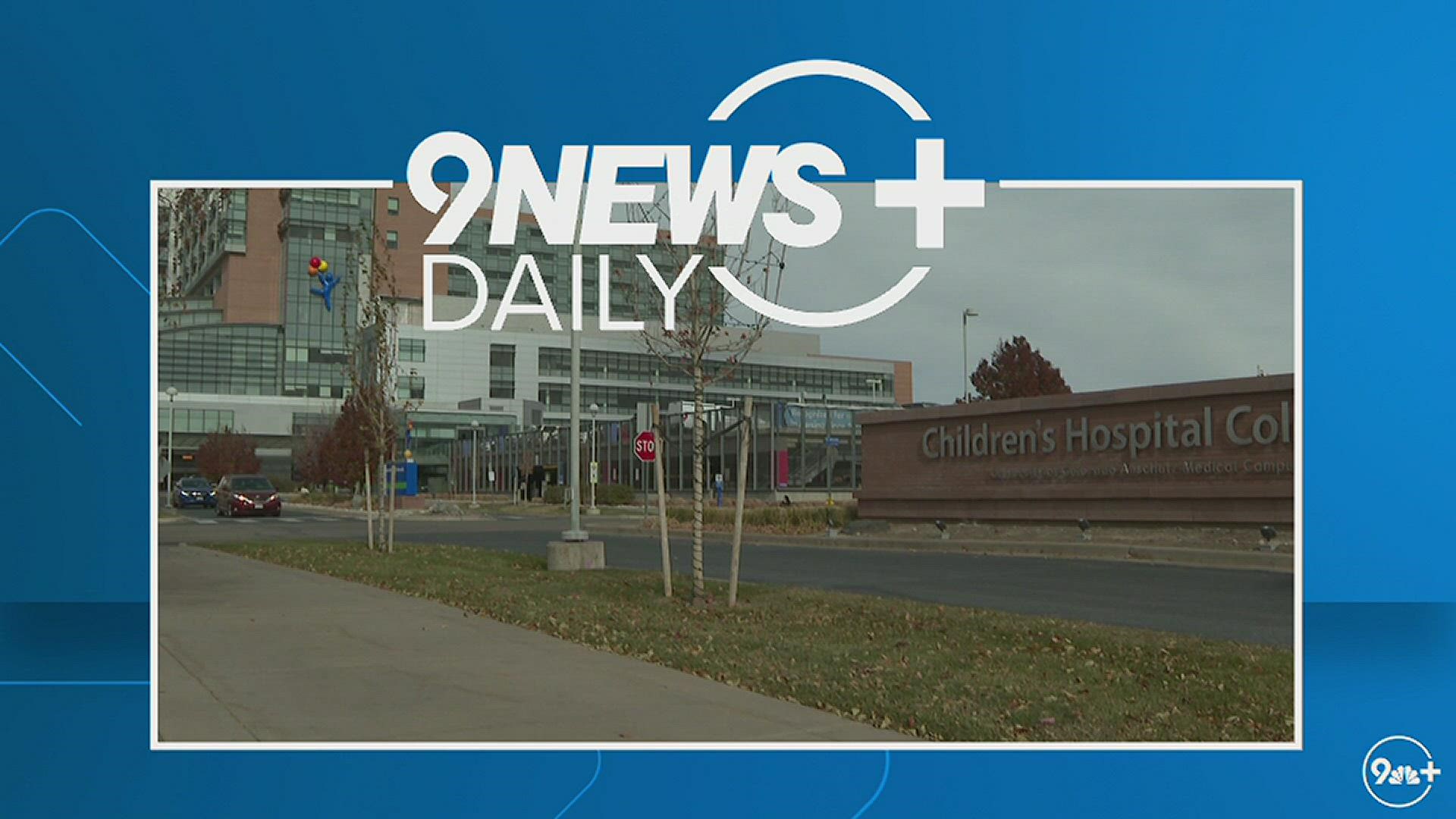DENVER — Colorado health officials on Monday said respiratory illnesses were still surging in the state with few pediatric beds available and a significant increase in the number of patients with influenza.
State Epidemiologist Dr. Rachel Herlihy said the positivity rate for RSV is approaching 25% with no sign of it slowing down. But Dr. Kevin Carney, Children's Hospital Colorado's associate medical director, said he believes the state has probably peaked in terms of RSV numbers.
"The thing that we are watching very closely is what’s going to happen with flu and subsequently COVID because from our standpoint, even when we’re through with the RSV surge, we are not out of the respiratory season by any stretch of the imagination,” he said.
Carney, spoke during the Children's Hospital Colorado presser and provided an update on RSV, hospital capacity and health tips for holiday travels.
During a Colorado Department of Public Health and Environment (CDPHE) news conference, CDPHE Division of Disease Control and Public Health Response Director Scott Bookman and State Epidemiologist Dr. Rachel Herlihy spoke.
Influenza and Respiratory Syncytial Virus (RSV)
Carney said the state is still in the midst of a severe early respiratory season.
“We continue to see lots and lots of cases of children with RSV, and in the last couple weeks, a pretty significant uptick in the number of patients showing up who have known influenza,” he said.
Carney said RSV cases are still high but that the speed at which they were increasing has slowed down.
Brianne Price, is the mother of two children, Brantley, 4, and Lily, 6 months old. She spoke during the Children's Hospital update about her experience with RSV after her daughter was infected and hospitalized for days.
She said that some of the symptoms she noticed in Lily were labored breathing, head bobbing and skin pulling on her ribs when breathing.
Carney said that the head bobbing is a common symptom in infants, along with nostrils flaring open and skin pulling on the ribs or neck area near the bottom of the throat. If the child is breathing really fast, Carney recommended calling a doctor or nurse, or seeking care at an urgent care clinic or ER.
CDPHE said as of Oct. 1, there have been 164 hospitalizations statewide for Influenza and 895 for RSV in the five-county Denver metro area. Influenza hospitalizations have primarily affected adults, while the majority of RSV hospitalizations, 93%, have been among the pediatric population.
There have been four influenza outbreaks in residential care facilities and RSV outbreaks in 255 in schools and child-care facilities and two residential care facilities.
CDPHE said RSV can be serious, especially for infants and children younger than 2, with the youngest infants most susceptible to severe disease.
The positivity rate for RSV is approaching 25%, a clear increasing trend with no sign of it slowing down, Herlihy said.
RSV hospitalization data through Nov. 12 shows RSV is surging much earlier in the season as compared with previous years, with much higher numbers of hospitalizations.
Influenza levels are also increasing, particularly with Influenza A. Influenza B levels remains low. While influenza hospitalizations are low, the state is ahead with most recent seasons on record.
Hospital capacity
Bookman said hospitals are "suffering from extreme stress right now" noting that there are currently only two pediatric ICU beds available in the state of Colorado. He said hospital systems were working together to expand capacity in every way possible.
"But there is extreme stress in the pediatric ICU capacity in the state of Colorado right now," Bookman said.
CDPHE is coordinating with hospitals statewide to use all available beds, and doing outreach with K-12 schools, preschools, and day care centers to ensure they have information on resources and mitigation strategies for RSV and other infectious diseases.
Carney said hospitals continue to function at 100% capacity in all units and emergency departments are "extremely busy."
COVID
Herlihy said Colorado is sitting at 12.38% positivity for COVID. As of Nov. 15, there were 379 individuals hospitalized in Colorado. Most of the hospitalizations, 350, were among adults.
Herlihy made mention of the effectiveness of vaccines to prevent hospitalization and therapeutics or medications to treat COVID.
"We continue to see good effectiveness associated with vaccines for preventing hospitalizations," she said. "Individuals who have received boosters are four and half times less likely to be hospitalized for COVID-19 compared to unvaccinated people."
With Pexlovid, the most common treatment for COVID, people are 90% less likely to be hospitalized.
Herlihy said omicron continues to be the dominant variant, with multiple subvariants being transmitted across the state. The BA.5 variant is declining and being replaced by variants like the BQ. 1.1 and BQ.1, which are becoming much more common in recent weeks, leading to increasing trends in the coming weeks.
Celebrate in safe manner
CDPHE said that people can take the following steps to try to stop the spread of the infection:
- Stay home if you are sick
- Get tested for COVID-19
- Get vaccinated against flu and COVID-19
- Get treatment if you test positive for COVID-19
- Practice good hand hygiene
- Improve ventilation and open windows and doors if possible
SUGGESTED VIDEOS: COVID-19 Coronavirus

